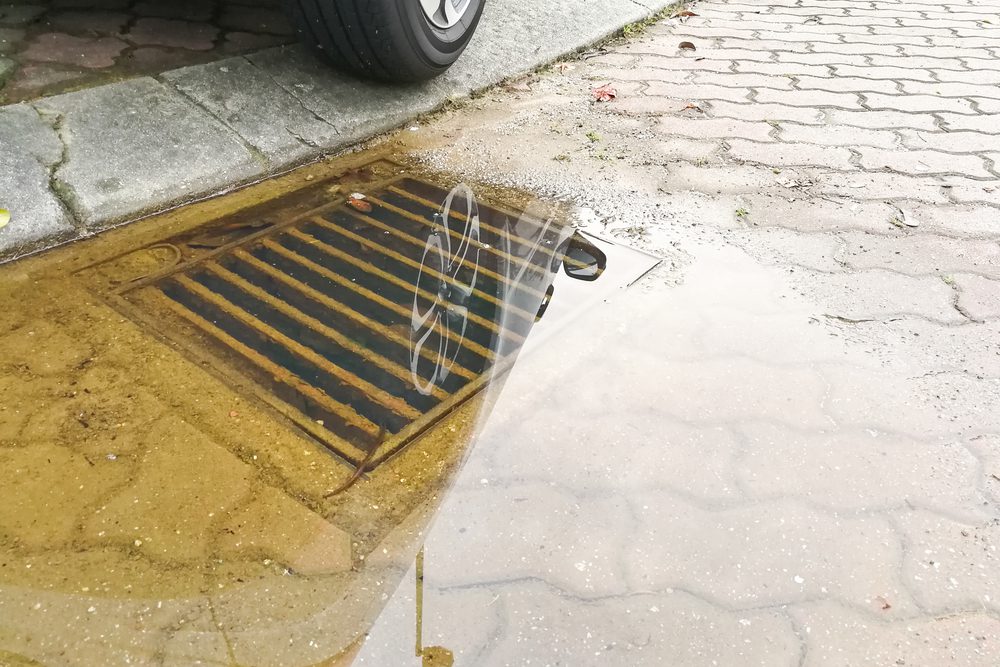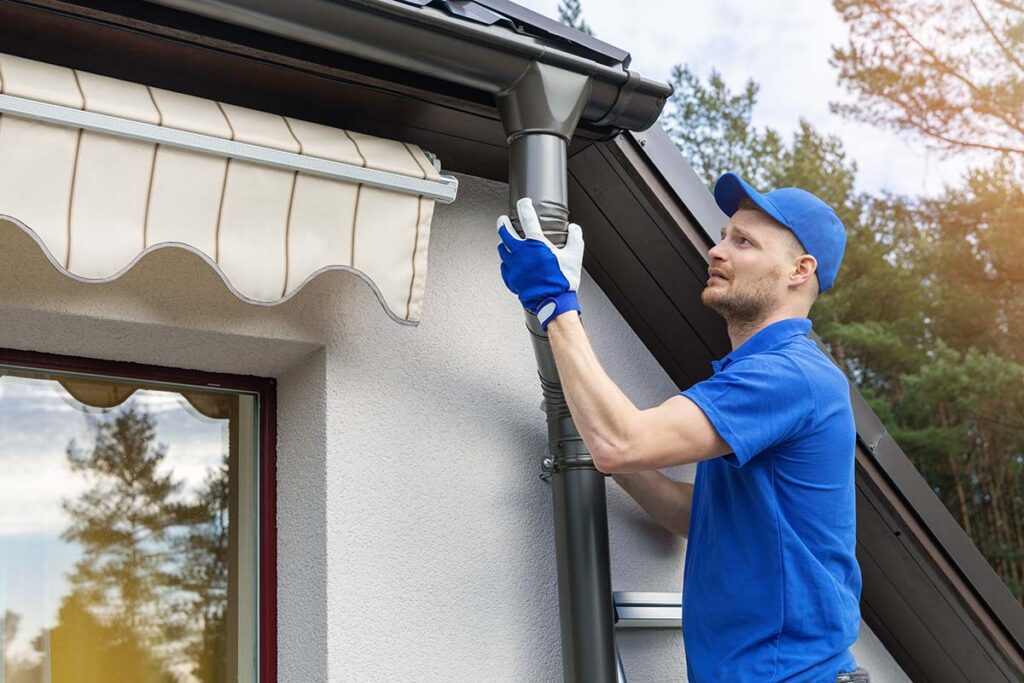Who to Call for Clogged Storm Drain | Expert Drain Solutions
If water is pooling and not draining as it should, there’s a good chance your storm drain is blocked. Knowing how to unclog a storm drain can help you prevent minor issues from turning into flooding.
The question is—who do you call? City services? A plumber? Or can you fix it yourself? Let’s break it down so you can get things flowing again.
Who to Call for a Clogged Storm Drain?
If a storm drain is on public property, contact your city’s public works department. If it’s on private property, hire a plumber or drain cleaning service.
Key Takeaways:
- If the storm drain is on public property, call your city’s public works department.
- If it’s on your property, you’re responsible for clearing it.
- Signs of a clog include slow drainage, standing water, foul smells, and gurgling sounds.
- DIY fixes include removing surface debris, using a drain snake, or pressure washing.
- If water backs up or odors persist, call a drain cleaning service or plumber.
Signs Your Storm Drain Needs Help
Slow Drainage and Pooling Water

If rainwater remains long after a storm, your drain is likely obstructed. Slow drainage typically indicates debris buildup restricting water flow.
Puddles forming near curbs, driveways, or low-lying areas in your yard suggest that the blockage is worsening.
Bad Smells Coming from the Drain
Storm drains should not emit foul odors. If you notice the smell of sewage, stagnant water, or decay, it may indicate trapped debris, standing water, or a system backup.
Debris Blocking the Drain
Leaves, dirt, and random junk piling up? That’s an early warning. If the drain grate is covered, it won’t take much to clog the system. A quick clean-up now can prevent bigger drainage problems later.
Ignoring it could lead to standing water, property damage, or even a flooded street. Regularly checking and clearing debris keeps things flowing smoothly.
Gurgling or Bubbling Sounds
Water should flow smoothly, and not sound like it’s struggling. If you hear gurgling when it rains, that means air is getting trapped—another sign of a blockage forming inside the drain.
Left unchecked, this can lead to slow drainage, backups, or even water pushing back onto your property. The sooner you handle it, the less mess you’ll deal with.
Call Your City or Municipality First
Public Drain? It’s Their Problem
If a storm drain is located on a public street, maintenance usually falls under the city’s responsibility. Most municipalities have a drainage or public works department that handles these concerns. In some cases, alternatives like a pipeless French drain may be used for specific areas, but for public streets, it’s best to contact the city by phone or visit their website to file a service request.
When the City Steps In
If flooding is blocking roads or sidewalks, they’ll likely send someone out quickly. But if the issue isn’t urgent, expect a wait—city services aren’t always fast. If you’re dealing with standing water after a storm, call sooner rather than later.
How to Contact the Right Department
Dial 311 if your city offers it, or visit your local government’s website for storm drain maintenance info. If you’re in a smaller town, your best bet might be calling city hall directly. Some areas also have online portals where you can report drainage issues.
If you’re unsure, a quick search for “storm drain service [your city]” should point you in the right direction.
What If It’s on Your Property?
If you are unsure whether the drain is public or private, refer to your property survey or contact your local municipality for clarification.
Neglecting a clogged drain can result in water damage, foundation problems, or even fines if it affects neighboring properties.
When to Call a Drain Cleaning or Plumbing Service
1. If the City Won’t Handle It
Does storm drain on public property? That’s the city’s job. But if the clog is on your property, it’s on you to fix it.
If local services won’t help or say it’s a private issue, a drain cleaning company or plumber is your next move.
2. When the Clog Is Too Deep
If water is barely draining or backing up onto your property, it’s a serious blockage. Plumbers have specialized tools like hydro-jetting and drain snakes to clear deep clogs.
If DIY fixes aren’t working and the problem keeps coming back, it’s time to call in the pros.
3. Bad Smells or Strange Noises? Time to Call
A storm drain shouldn’t smell like sewage or sound like it’s gasping for air. If you notice foul odors or bubbling noises, there’s likely a blockage in the system.
A drain specialist can check for trapped debris, grease buildup, or even tree root intrusion.
4. Flooding? Don’t Wait
If water is overflowing onto your property or pooling dangerously close to your home, don’t wait. Standing water can weaken foundations, cause mold growth, and attract pests.
Call an emergency plumbing service before the damage gets worse.
What About a Landscaping or Gutter Service?

1. When Landscaping Can Help
If leaves, dirt, or tree roots are clogging your drain, a landscaper might be the fix. They can clear debris, improve drainage, and prevent future clogs.
If your yard slopes toward the drain, they can also regrade the area to help water flow properly.
2. Gutter Problems? Call a Pro
Clogged gutters can dump water in all the wrong places, overwhelming storm drains. A gutter cleaning service can clear out leaves and debris so water flows where it should.
They can also check for sagging or leaks that might be making the problem worse.
3. Preventative Maintenance is Key
Landscapers and gutter pros can help prevent future drain issues. Regular gutter cleanings and yard upkeep stop blockages before they start.
If your storm drain constantly clogs from runoff, it’s worth bringing in one of these services to create a long-term fix.
If you live in Miami , Pembroke Pines, or Doral, you can book our service of storm drain cleaning and we’ll take care of everything for you.
For the residents of Pembroke Pines, we offer them catch basin cleaning services as well.
Can You Fix It Yourself?
1. Start with Surface Debris
If leaves, dirt, or trash are obstructing the drain, remove them using a rake or shovel. In many cases, the issue is superficial, and clearing debris can restore proper drainage.
Check the surrounding area as well—debris tends to accumulate quickly, especially after a storm. If there is a buildup, clear several feet around the drain to prevent further obstructions.
2. Try a Drain Snake or Pressure Washer
If water still won’t drain, the clog might be deeper. A drain snake can pull out stuck debris, while a pressure washer can blast it through. If you don’t own one, many hardware stores rent them out.
Start with the snake if you suspect leaves or mud, but if that doesn’t work, a pressure washer’s high force might be your best bet. Be careful, though—too much pressure can damage old pipes.
3. Boiling Water or Drain Cleaner?
Pouring boiling water can break up minor clogs, especially if grease is involved. If that doesn’t work, a biodegradable drain cleaner can help. Avoid harsh chemicals—they can corrode pipes and create bigger problems.
Stick to eco-friendly options that won’t hurt your drainage system or nearby plants. If the blockage keeps coming back, it could be a sign of something more serious, like tree roots invading the pipes.
4. Know When to Call a Pro
If nothing’s working, don’t keep guessing. If water is backing up, the clog is likely too deep for DIY fixes. At that point, calling a plumber or drain specialist is your best move. Waiting too long can lead to water damage, bad odors, and even fines if the blockage causes flooding.
If the issue keeps returning, it could be a collapsed pipe or a larger drainage problem—both require expert help.
Frequently Asked Questions
1. Who is responsible for a clogged storm drain?
If the drain is on public property, the city or municipality usually handles it. If it’s on your private property, it’s your responsibility to clear it. Not sure? Call your local public works department to check.
2. Can a clogged storm drain cause flooding?
Absolutely. If water can’t flow through, it backs up onto streets, driveways, and even into basements. Catching a clog early can prevent bigger (and pricier) problems.
3. Should I use chemical drain cleaners?
Skip the harsh chemicals. They can damage pipes and harm the environment. Try boiling water, a drain snake, or a pressure washer instead.
4. How often should storm drains be cleaned?
At least twice a year, especially before rainy seasons. If you live in an area with lots of trees, check more often to clear out leaves.
5. What if I ignore a clogged storm drain?
Standing water, foundation damage, and potential fines—none of which are fun. Fix it before it turns into a bigger mess.
Conclusion:
A clogged storm drain isn’t something to ignore. If it’s on public property, call your city. If it’s on your property, try a DIY fix or call a plumber. Landscapers and gutter pros can help prevent future clogs.
Act fast—waiting too long could mean flooding, damage, and costly repairs.
